Repulsive interaction between photons is created in ultracold gas.



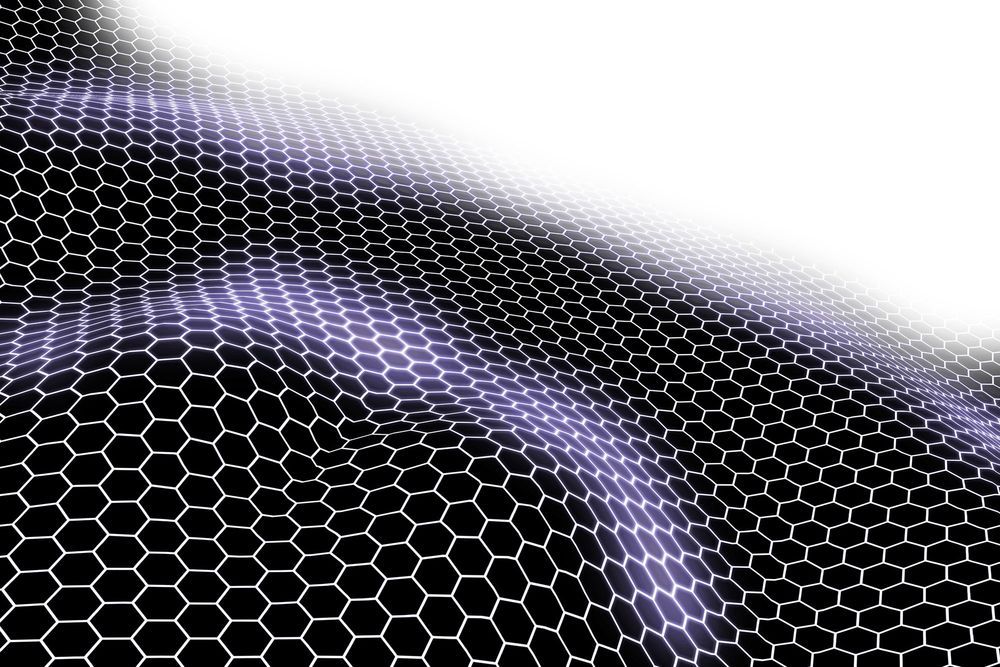
The wonder material graphene can take many forms for many different purposes, from transparent films that repel mosquitoes to crumpled balls that could boost the safety of batteries. One that has scientists particularly excited is nanoribbons for applications in energy storage and computing, but producing these ultra-thin strips of graphene has proven a difficult undertaking. Scientists are claiming a breakthrough in this area, devising a method that has enabled them to efficiently produce graphene nanoribbons directly on the surface of semiconductors for the first time.
As opposed to the sheets of carbon atoms arranged in honeycomb patterns that make up traditional graphene, graphene nanoribbons consist of thin strips just a handful of atoms wide. This material has great potential as a cheaper and smaller alternative to silicon transistors that would also run faster and use less power, or as electrodes for batteries that can charge in as little as five minutes.
“This is why many research groups around the world are focusing their efforts on graphene nanoribbons,” explains study author and chemist, Professor Konstantin Amsharov from Germany’s Martin Luther University of Halle-Wittenberg (MLU).

Updated mathematical techniques that can distinguish between two types of ‘non-Gaussian curve’ could make it easier for researchers to study the nature of quantum entanglement.
Quantum entanglement is perhaps one of the most intriguing phenomena known to physics. It describes how the fates of multiple particles can become entwined, even when separated by vast distances. Importantly, the probability distributions needed to define the quantum states of these particles deviate from the bell-shaped, or ‘Gaussian’ curves which underly many natural processes. Non-Gaussian curves don’t apply to quantum systems alone, however. They can also be composed of mixtures of regular Gaussian curves, producing difficulties for physicists studying quantum entanglement. In new research published in EPJ D, Shao-Hua Xiang and colleagues at Huaihua University in China propose a solution to this problem. They suggest an updated set of equations that allows physicists to easily check whether or not a non-Gaussian state is genuinely quantum.
As physicists make more discoveries about the nature of quantum entanglement, they are rapidly making progress towards advanced applications in the fields of quantum communication and computation. The approach taken in this study could prove to speed up the pace of these advances. Xiang and colleagues acknowledge that while all previous efforts to distinguish between both types of non-Gaussian curve have had some success, their choices of Gaussian curves as a starting point have so far meant that no one approach has yet proven to be completely effective. Based on the argument that there can’t be any truly reliable Gaussian reference for any genuinely quantum non-Gaussian state, the researchers present a new theoretical framework.

In the strange field of quantum physics, quantum entanglement – what Einstein called “spooky action at a distance” – stands out as one of the most intriguing phenomena. And now scientists just managed to successfully demonstrate it again, this time onboard a CubeSat satellite orbiting Earth.
Quantum entanglement is where two particles become inextricably linked across a distance, so that one serves as an indicator of the other in a certain aspect. That unbreakable link might one day form the basis of a super-fast, super-secure quantum internet.
While a quantum internet is still some way off, if we want to make it work, it’s going to require something other than optical fibres.
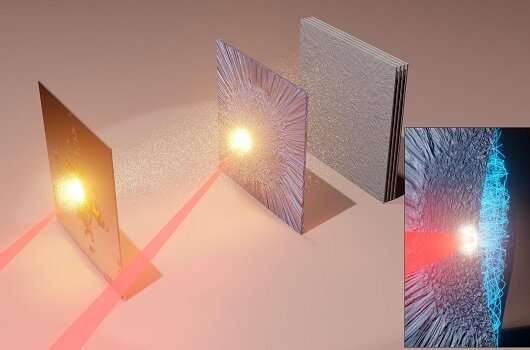
The magnetic structures resulting from a plasma instability predicted by the physicist Erich Weibel about 50 years ago have been evidenced at surprisingly large scales in a laser-driven plasma in the prestigious journal Nature Physics. This instability is also expected to operate in astrophysical settings where it is held responsible for the acceleration of cosmic rays and the emission of gamma photons in the famous “gamma-ray bursts.”
Julien Fuchs, a graduate of the Institut national de la recherche scientifique (INRS) and a researcher at the Laboratoire pour l’utilisation des lasers intenses (LULI) in France, INRS Professor Patrizio Antici, a specialist in laser-driven particle acceleration, and INRS Professor Emeritus Henri Pépin have succeeded in measuring the magnetic fields produced by Weibel instabilities within a laser-driven plasma, an ionized gas. Their results were published on June 1 in Nature Physics.
The researchers used the proton radiography technique to visualize this extremely fast phenomenon. “Our protons accelerated by laser-plasma interaction are able to take a sequence of images of very fast electromagnetic phenomena, lasting a few picoseconds only and with a resolution of a few microns. This allows us to probe instabilities with precision unmatched by other imaging techniques,” reports Patrizio Antici, who did his thesis under the supervision of Professor Fuchs, himself formerly under the direction of Professor Pépin.
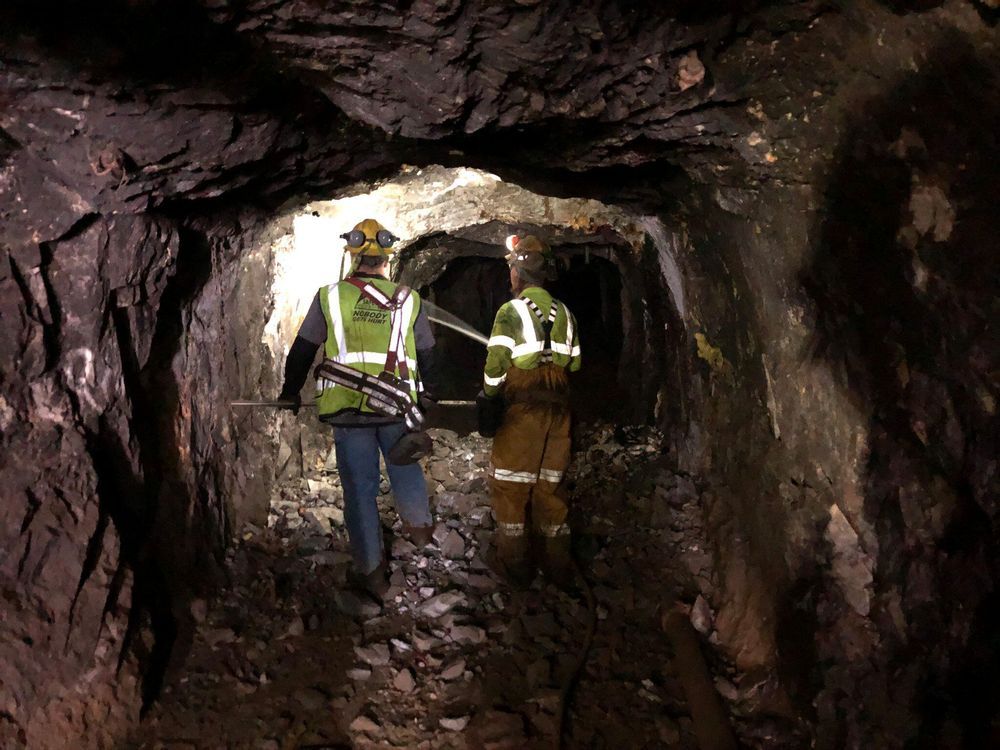
It started with a blast.
On June 23, construction company Kiewit Alberici Joint Venture set off explosives 3,650 feet beneath the surface in Lead, South Dakota, to begin creating space for the international Deep Underground Neutrino Experiment, hosted by the Department of Energy’s Fermilab.
The blast is the start of underground excavation activity for the experiment, known as DUNE, and the infrastructure that powers and houses it, called the Long-Baseline Neutrino Facility, or LBNF.
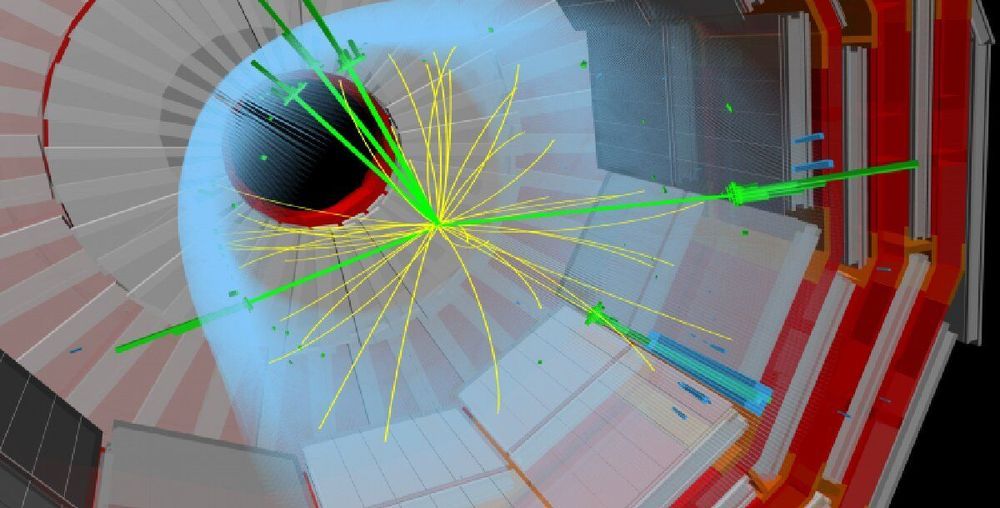
Modern physics knows a great deal about how the universe works, from the grand scale of galaxies down to the infinitesimally small size of quarks and gluons. Still, the answers to some major mysteries, such as the nature of dark matter and origin of gravity, have remained out of reach.
Caltech physicists and their colleagues using the Large Hadron Collider (LHC) at the European Organization for Nuclear Research (CERN) in Geneva, Switzerland, the largest and most powerful particle accelerator in existence, and its Compact Muon Solenoid (CMS) experiment have made a new observation of very rare events that could help take physics beyond its current understanding of the world.
The new observation involves the simultaneous production of three W or Z bosons, subatomic “mediator particles” that carry the weak force—one of the four known fundamental forces —which is responsible for the phenomenon of radioactivity as well as an essential ingredient in the sun’s thermonuclear processes.
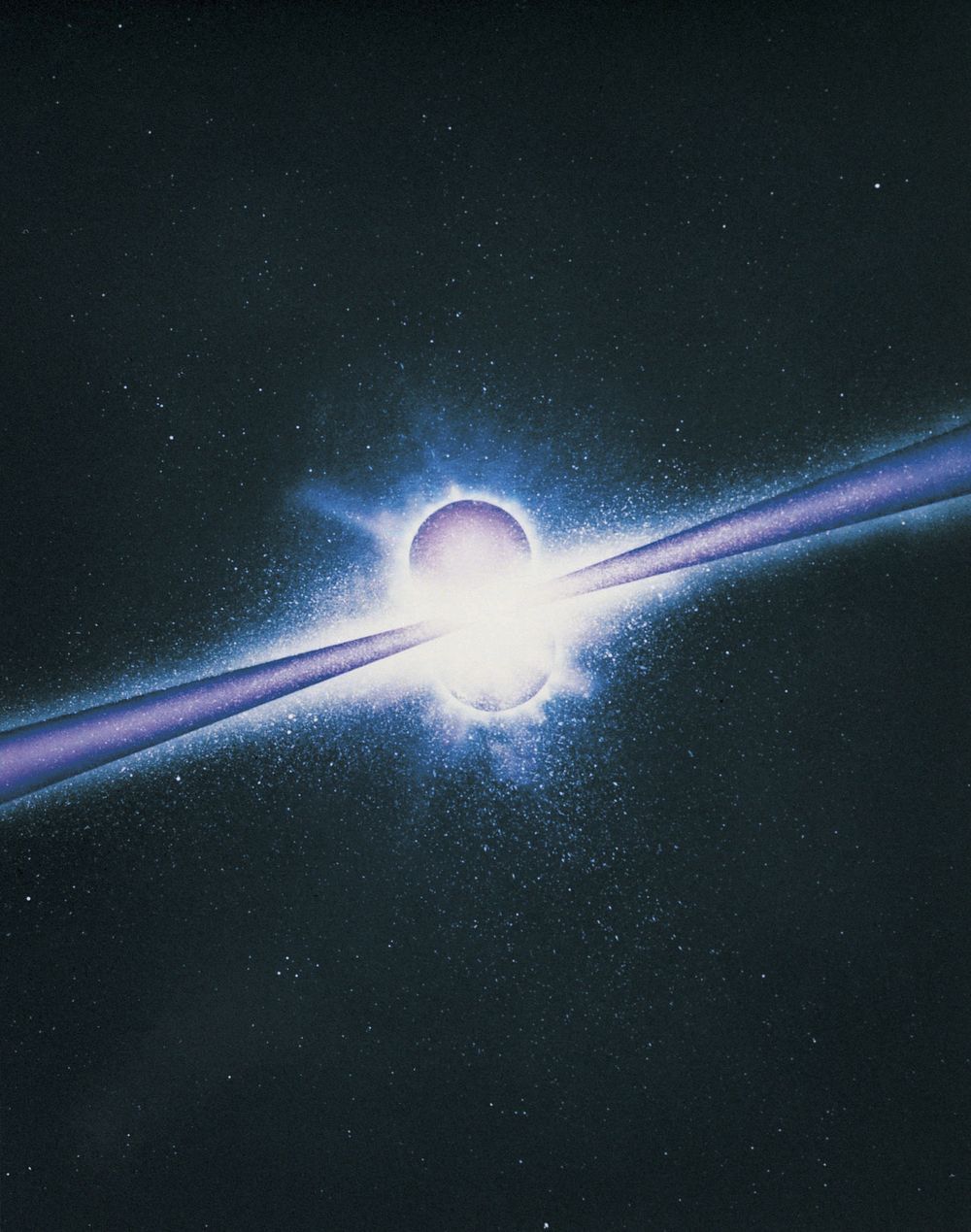
A scientist in California has taken steps toward a long-sought gamma ray laser by harnessing positronium bubbles in special liquid helium. Positronium is a volatile, short-lived atom that seems kind of like hydrogen but has a positron—an antiparticle considered opposite to an electron, sometimes even called an antielectron—instead of a proton.
Holding positronium in liquid helium extends its viable stability, a relationship that’s decades old: “Positronium’s long lifetime in liquid helium was first reported in 1957,” says the press release, which links to a paper by physicist Richard A. Ferrell about the “reduced pickoff” positronium experiences when it can form a bubble inside liquid helium.
It is one of the most astonishing results of physics: when a complex system is left alone, it will return to its initial state with almost perfect precision. Gas particles, for example, chaotically swirling around in a container, will return almost exactly to their starting positions after some time. This “Poincaré Recurrence Theorem” is the foundation of modern chaos theory. For decades, scientists have investigated how this theorem can be applied to the world of quantum physics. Now, researchers at TU Wien (Vienna) have successfully demonstrated a kind of “Poincaré recurrence” in a multi-particle quantum system. The results have been published in the journal Science.
An Old Question, Revisited
At the end of the 19th century, the French scientist Henri Poincaré studied systems which cannot be fully analysed with perfect precision — for example solar systems consisting of many planets and asteroids, or gas particles, which keep bumping into each other. His surprising result: every state which is physically possible will be occupied by the system at some point — at least to a very good degree of approximation. If we just wait long enough, at some point all planets will form a straight line, just by coincidence. The gas particles in a box will create interesting patterns, or go back to the state in which they were when the experiment started.